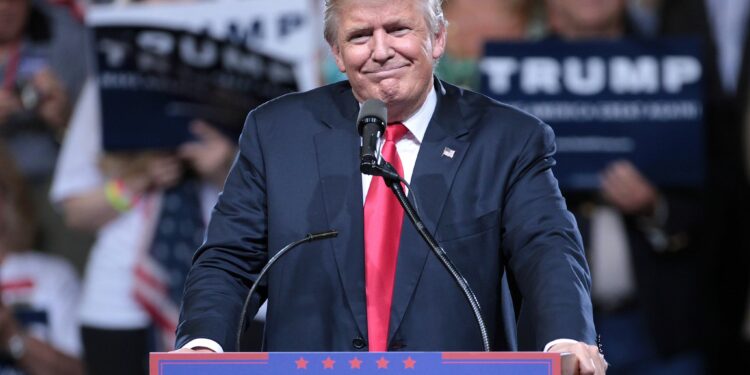
Since President Donald Trump’s inauguration, Tesla’s stock has been on a downward trajectory, facing a combination of internal and external factors that have sparked concern among investors. Tesla’s stock surged after Trump’s victory in the 2024 election, reaching an all-time high of $483.99 by December 17, 2024. However, in the weeks leading up to his swearing-in, the stock began to show signs of decline, and after Trump took office, it dropped by 20 percent, closing at $336.51 by February 12, 2025.
Tesla, a key player in the electric vehicle (EV) industry, has long been a dominant force in the stock market, and its performance directly influences the broader S&P 500 index. As a result, the company’s fortunes have been tied closely to the leadership of CEO Elon Musk, who has seen his own net worth suffer alongside the company’s decline. Tesla is now the worst performer among the “Magnificent Seven” tech companies, despite its stellar performance in recent years.
Several factors are contributing to this decline. First, Tesla’s sales figures have been disappointing, particularly in overseas markets. In Germany, Tesla’s sales plummeted by nearly 60 percent in January 2025 compared to the previous year. Similarly, sales dropped by 63 percent in France and more than 40 percent in several other European countries. Even in Australia, Tesla’s sales fell by 33 percent. Meanwhile, in China—the company’s second-largest market—sales were down 11 percent in January, further hurting investor confidence.
Tesla’s fourth-quarter earnings for 2024 were also underwhelming, with a 23 percent year-over-year drop in operating income, signaling potential long-term issues with the company’s profitability.
Some analysts suggest that the new trade policies enacted by the Trump administration may be adding pressure on Tesla. Trump’s recent executive orders imposing a 25 percent tariff on steel and aluminum imports could affect Tesla’s production costs. Additionally, the tariffs on Chinese imports could potentially disrupt Tesla’s supply chain, as a significant portion of the materials for its batteries comes from Chinese suppliers.
Beyond trade policies, Musk’s expanding role within the Trump administration could also be a factor. As the head of the newly created Department of Government Efficiency (DOGE), Musk’s political involvement is raising concerns among investors. With Musk becoming a more prominent political figure, especially in Europe where he has publicly supported far-right parties, Tesla’s brand has become increasingly polarizing. A 2023 survey found that many consumers in the U.K. are now reluctant to purchase a Tesla due to Musk’s political ties. This trend could lead to further challenges for Tesla as it seeks to expand its market share.
Tesla’s lack of new vehicle models has also left it vulnerable to competition. While competitors like BYD in China are rapidly advancing in the self-driving space, Tesla has been slow to innovate, allowing its rivals to catch up. Investors are concerned that Tesla may lose its edge in the race toward autonomous driving, especially with new AI technology gaining traction in the market.
As we move further into 2025, Tesla faces a number of headwinds, from rising competition and declining sales to the potential geopolitical fallout from Trump’s trade policies. While Tesla’s stock may have gained 70 percent in the past six months, these ongoing challenges suggest that the company’s future remains uncertain. Investors and consumers alike will be closely watching the company’s next moves in order to gauge whether it can regain its position as the leader in electric vehicles.
